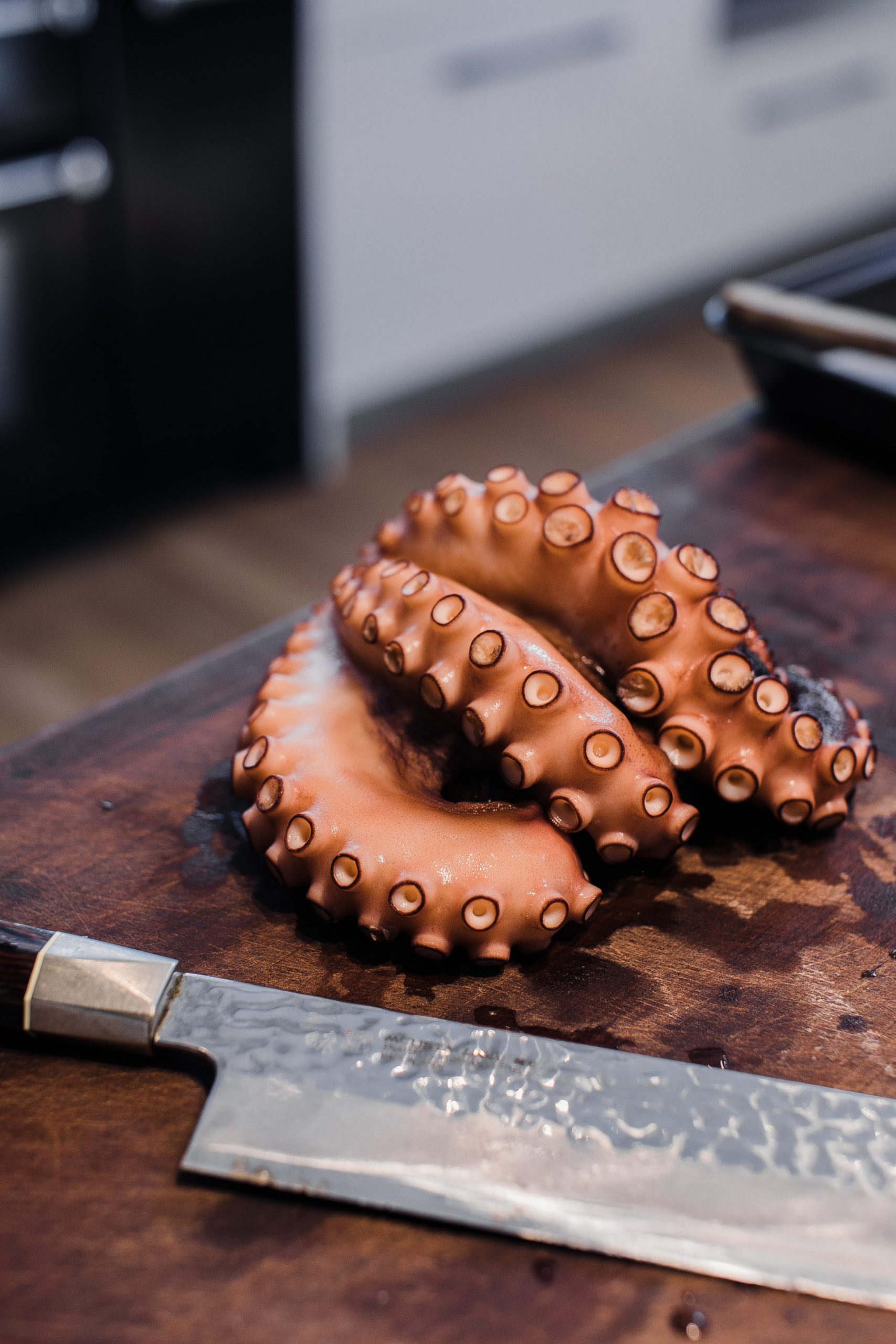
- Readers Rating
- No Rating Yet!
- Your Rating
Octopus is one of the most fascinating and versatile ingredients in world gastronomy. Its ability to adapt to different preparations and flavours has given rise to a wide variety of dishes all over the world. In this article we will explain the main differences between Galician and Moroccan octopus, take note!
The differences between Galician and Moroccan octopus: a delicious comparison
Octopus is a popular ingredient all over the world and is prepared in different ways in different culinary cultures. Two of the best known and tastiest variants are Galician and Moroccan octopus. Although both share the same main ingredient, octopus, they have notable differences in terms of taste, preparation and presentation. In this article, we will explore these differences to help you better understand these two dishes and help you choose which one you would like to try the next time you find yourself in front of a tempting menu.
Galician Octopus
Known in Galicia as “pulpo a la gallega,” is one of the most iconic dishes from the northwestern region of Spain. The preparation is relatively simple, but its unique flavour and tender texture make it a coveted delicacy. Here are some of the highlights of Galician octopus:
-
Traditional Flavour
Galician octopus is characterised by its mild and slightly salty flavour. It is usually cooked in salted water and bay leaves are often added to give it an extra touch of aroma. The octopus takes its essence from the sea, giving it a fresh and pure flavour that evokes the waters of the Atlantic.
-
Unparalleled Texture
One of the most outstanding aspects of Galician octopus is its unique texture. When cooked properly, it becomes tender and soft, without being rubbery or difficult to chew. This texture is achieved by simmering the octopus long enough to soften its muscle fibres, but without overdoing it to prevent it from becoming mushy.
-
Simplicity in Preparation
Galician is usually served in thin slices, drizzled with olive oil, salt and paprika. It is often served on a bed of boiled potatoes that act as a counterpoint to the softness of the octopus. This simple presentation allows the flavours of the octopus to stand out and is a real treat for lovers of seafood cuisine.
-
Traditional Dishes
In Galicia, octopus is a staple at popular festivals and family celebrations. Pulpeiros, cooks specialised in the preparation of octopus, are a common sight at fairs and markets. In the squares of Galicia, it is common to see large copper pots boiling octopus, ready to be sliced and served to hungry diners.

Moroccan Octopus
Moroccan octopus is a delicious variant enjoyed in Morocco and other regions of North Africa. Although Moroccan shares the main ingredient with Galician, it has significant differences in taste, preparation and presentation. Below, we explore the key characteristics of Moroccan:
-
Spicy Flavour
Unlike the mild flavour of Galician, Moroccan octopus is characterised by its hotter and spicier flavour profile. It is cooked with a blend of traditional Moroccan spices, including turmeric, cumin, paprika, and coriander, giving it a unique and vibrant flavour.
-
Preparation in Tajine
Moroccan is commonly prepared in a tajine, a traditional clay pot used in Moroccan cooking. The tajine allows the flavours to blend evenly and the octopus to acquire the desired texture and flavour. In addition, the tajine creates a cooking environment that retains moisture, which helps the octopus maintain its juiciness.
-
Varied Accompaniments
Moroccan octopus is often served with a variety of accompaniments, such as rice, couscous or bread. These accompaniments may be seasoned with the same spices used in the preparation of the octopus, creating a rich and comforting culinary experience.
-
Foreign Influences
Moroccan cuisine has been influenced by a number of cultures throughout history, including Arab, Berber, Jewish and French. These influences are reflected in the diversity of flavours and culinary techniques used in the preparation of Moroccan. This makes it a truly eclectic and delicious dish.

Comparison of the Differences
Now that we have explored the distinguishing characteristics of Galician and Moroccan, it is time for a more detailed comparison:
Flavour:
- Galician has a mild, slightly salty flavour, which highlights the freshness of the octopus and is complemented by the potatoes and paprika.
- Moroccan has a hotter and spicier flavour, thanks to the traditional Moroccan spice blend, which gives it a distinctive and vibrant touch.
Texture:
- Galician is characterised by its tender and soft texture when cooked properly.
- Moroccan, cooked in tajine, is also tender but may take on a slightly different texture due to cooking in the clay pot.
Preparation:
- Galician-style is usually cooked in salted water and served in thin slices, drizzled with olive oil, salt and paprika.
- Moroccan is prepared in tajine with a mixture of Moroccan spices and served with a variety of accompaniments.
Cultural Influences:
- Galician is an iconic dish from the region of Galicia, Spain, with culinary influences from Spanish cuisine.
- Moroccan is part of the rich Moroccan culinary tradition, which has been influenced by various cultures throughout history.
Which one should you try?
The choice between Galician and Moroccan ultimately depends on your personal preferences and your willingness to explore new flavours. If you are looking for a milder, more traditional culinary experience, Galician octopus is an excellent choice. On the other hand, if you are interested in bolder and spicier flavours, Moroccan will take you on an exciting culinary journey.
However, the good news is that you don’t need to choose one over the other. If you get the chance to try both dishes, you will appreciate the diversity of flavours and culinary techniques they offer. The variety in cuisine is what makes gastronomic exploration so exciting and satisfying.
Conclusion
Octopus is a versatile ingredient that is deliciously prepared in different parts of the world. Galician and Moroccan are two great examples of how the same ingredient can give rise to completely different culinary experiences. Whether you favour the smoothness and simplicity of Galician or the hot and spicy flavours of Moroccan octopus, both dishes deserve to be appreciated for their uniqueness and culinary authenticity.
The next time you find yourself faced with a menu offering these options, don’t hesitate to try both for a complete and enriching culinary experience. Whether in Galicia or Morocco, octopus is a delicacy that will leave you with a lasting taste of the region and its rich culinary tradition. Enter our mentta blog to learn more about the world of gastronomy.
